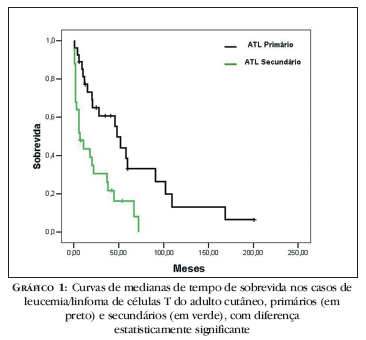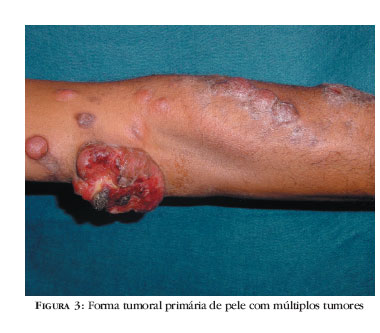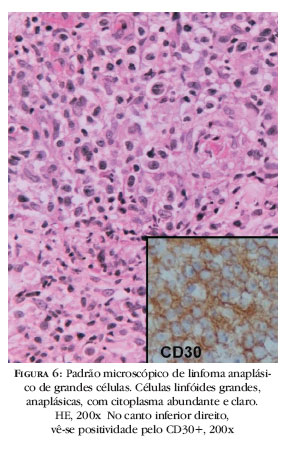Adult T cell leukemia/lymphoma (ATL) is an aggressive type of lymphoproliferative disease associated with the human T-cell lymphotropic virus type I (HTLV-I) that is characterized by a short survival time and absence of response to chemotherapy. ATL is classified into four clinical types: acute, chronic, lymphoma, and smoldering. Another clinical form of ATL, the primary cutaneous tumoral,with diverse characteristics, has been recently suggested. Patients with acute, lymphoma and primary cutaneous tumoral types have a poor prognosis. The diagnostic criteria of ATL consist of: positive serology for HTLV-I; cytologic or histologic confirmation of CD4+/CD25+ T-cell leukemia/lymphoma; abnormal T lymphocytes in peripheral blood; and confirmation of monoclonal integration of HTLV-I proviral DNA. There is skin involvement in around 70% of ATL cases, which could be primary (smoldering and primary cutaneous tumoral) or secondary. The skin lesions are multiple, erythroderma, papules and plaques being the most common. ATL has no characteristic histological pattern, and may present patterns that could superimpose nonspecific peripheral T-cell lymphoma, mycosis fungoides or anaplastic large cell lymphoma. The immunohistochemistry pattern may also be similar to that of other T-cell lymphomas. Thus, it is very important that in Brazil HTLV-I infection be investigated in all mature T-cell leukemias/lymphomas.
Adult T-cell leukemia; Anaplastic large-cell lymphomas; HTLV-I-associated myelopathy/tropical spastic paraparesis (HAM/TSP); Mycosis fungoides; T-cell cutaneous lymphoma










